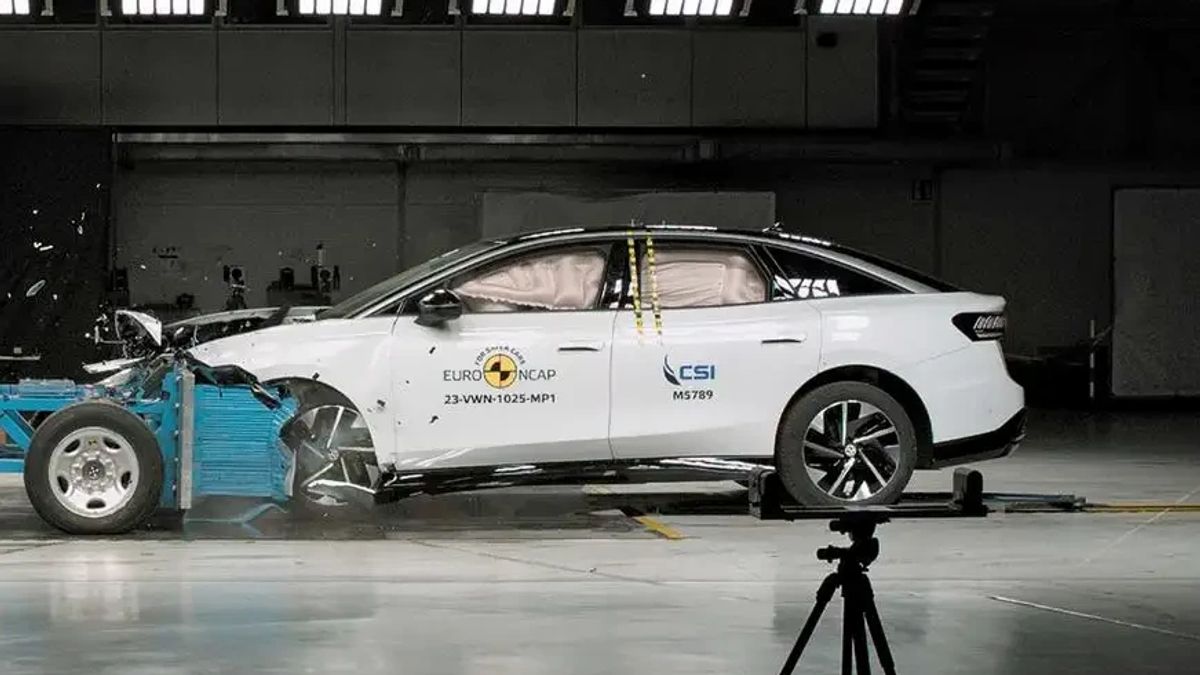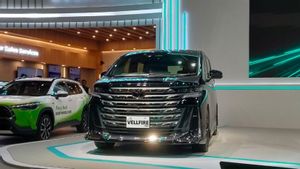JAKARTA - One of the best-selling drivers of a new car in Europe is the good impact test value or five-star rating.
Euro NCAP, a European vehicle safety testing institute, said it experienced a significant decline in the number of cars evaluated in 2023. The number of cars evaluated dropped dramatically from 73 types of cars in 2022 to only 18 types in 2023.
According to a spokesman for Euro NCAP, reported by Autocar, February 15, the decline was partly due to automakers seeking to get ratings before stricter testing regulations were implemented in 2023.
"In 2022, car manufacturers are vying to get ratings before the testing scheme changes in 2023 with the introduction of new, more challenging testing," said the spokesman, who did not want to be named.
It is known, the influence of the Euro NCAP rating system is not only limited to new car sales, but also affects car insurance groups. This makes new testing an important factor in determining the product cycle and launch date, with automakers setting their star ranking targets from the start against certain versions of the protocol.
After setting the target, car manufacturers are faced with pressure to immediately produce cars to meet the rating target. Therefore, the decrease in the number of cars assessed by Euro NCAP in 2023 is not surprising.
"Produsen sering membutuhkan waktu lebih lama untuk memahami syarat yang diperlukan untuk mendapatkan lima bintang," jelas juru bicara tersebut.
"We've seen fluctuations in our number of testing over the past decade," he added.
관련 항목:
Test changes due to stricter testing regulations in 2023 are not the only reason for the decline in the number of cars assessed in 2023. Car manufacturers are also in the transition process, extending the lives of several existing combustion engine (ICE) cars while providing them with room to develop new electric cars.
As a result, the Euro NCAP has assessed many engine variants of ICE models in recent years, a trend that has begun to slow down along with the emergence of new electric cars.
In addition, the difference in the number of cars that Euro NCAP considers in 2022 compared to 2023 is enlarged not only by car manufacturers who are trying to comply with the new test protocol, but also by the Covid-19 pandemic, which caused a shortage of chips and delays in launching new models.
"With the current pandemic being a new memory and test that has been implemented, Euro NCAP hopes to assess at least 40 cars by 2024 and perhaps more in 2025 ahead of the introduction of a new test in 2026," the spokesperson concluded.
The English, Chinese, Japanese, Arabic, and French versions are automatically generated by the AI. So there may still be inaccuracies in translating, please always see Indonesian as our main language. (system supported by DigitalSiber.id)













